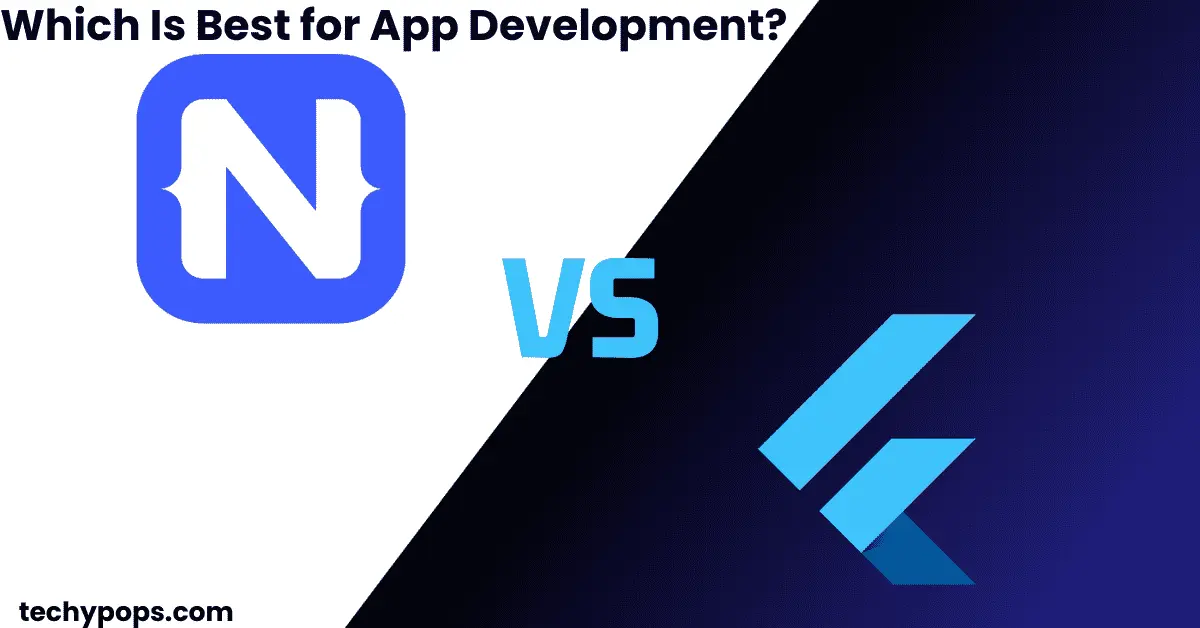When building a mobile app, one of the most important decisions you’ll face is choosing between Flutter and Native development. Both have their strengths and weaknesses, and the right choice depends on your project’s goals, timeline, and budget.
In this article, we’ll explore the key differences between Flutter and Native app development, discussing performance, cost, ease of use, and when to use each.
What is Flutter?

Flutter is an open-source UI software development kit (SDK) created by Google. It allows developers to build cross-platform apps from a single codebase, meaning they can use the same code to build apps for both iOS and Android.
Key Features of Flutter:
- Single Codebase: Develop once, deploy on both iOS and Android.
- Fast Development: Hot reload feature allows developers to see changes instantly.
- Customizable Widgets: Flutter offers a wide range of pre-designed widgets for creating visually attractive apps.
- Dart Programming Language: Uses the Dart language, which is known for its efficiency and speed.
What is Native App Development?

Native app development refers to building mobile applications using the platform-specific programming languages and tools provided by the operating systems.
- iOS Native Development: Uses Swift or Objective-C with Xcode as the development environment.
- Android Native Development: Uses Java or Kotlin with Android Studio as the development environment.
Key Features of Native Development:
- Optimized Performance: Native apps offer the best performance as they are optimized for their specific platforms.
- Access to Platform-Specific Features: Native apps can fully utilize the device’s hardware and platform-specific APIs.
- Superior User Experience: Since native apps are built specifically for each platform, they provide a more tailored user experience.
Performance: Flutter vs Native

When comparing performance, native apps generally have the edge. Since native apps are built specifically for the platform (iOS or Android), they are optimized for performance and can access hardware features directly, resulting in smoother animations and faster load times.
However, Flutter performs remarkably well for most apps, thanks to its Dart programming language and the way it renders UI components directly on the screen. For simple to moderately complex apps, Flutter’s performance is often indistinguishable from native apps.
Pros of Native Performance:
- Better for resource-intensive apps like games or apps requiring extensive animations.
- Full access to platform-specific APIs and hardware features.
Pros of Flutter Performance:
- Faster development cycles due to the single codebase.
- For most standard apps, the performance difference is negligible.
Development Speed: Flutter vs Native
One of Flutter’s biggest advantages is development speed. With Flutter, you can develop a single app that works on both iOS and Android, which significantly reduces the time and effort required to bring an app to market.
Native development, on the other hand, requires building two separate apps—one for iOS and one for Android. This means more coding, testing, and debugging, which takes longer.
Pros of Flutter Development Speed:
- Single codebase for iOS and Android.
- Hot reload feature allows developers to make changes quickly and see results instantly.
Pros of Native Development Speed:
- More time-consuming but allows for highly optimized apps with platform-specific features.
Cost: Flutter vs Native
When it comes to cost, Flutter offers a more budget-friendly solution for most projects. Since you only need one codebase for both platforms, development costs are typically lower compared to native development, where two separate teams may be required to build and maintain the app.
Native development, while potentially more expensive, offers long-term value for apps that need platform-specific optimization or advanced features.
Flutter Cost Benefits:
- Lower development costs with one codebase.
- Ideal for startups and companies looking for quick deployment on both platforms.
Native Cost Benefits:
- Higher upfront costs but better long-term performance for complex, resource-heavy apps.
User Experience: Flutter vs Native

Native apps provide the best user experience because they are designed to follow platform-specific guidelines. This results in apps that feel “native” to the device, with smooth interactions and faster response times.
Flutter apps, while visually appealing and highly customizable, may not always fully capture the look and feel of native apps, especially when using non-standard widgets. However, Flutter’s flexibility allows developers to create highly customized UI components that can match or even surpass native designs in certain cases.
Pros of Native User Experience:
- Best for apps requiring a highly optimized and platform-specific experience.
- Tailored UI/UX for each platform.
Pros of Flutter User Experience:
- Consistent UI across both platforms.
- Highly customizable designs with a wide range of widgets.
When to Choose Flutter vs Native
When to Choose Flutter:
- You need to build an app quickly for both iOS and Android.
- You are working with a limited budget.
- The app doesn’t require highly complex, platform-specific features.
When to Choose Native:
- Your app requires high-performance or resource-intensive functionality (e.g., games).
- You need to access platform-specific features or APIs.
- You are aiming for the best possible user experience on each platform.
FAQs
Conclusion: Flutter vs Native – Which is Better?
Choosing between Flutter and Native development depends on your project requirements. Flutter is an excellent choice for startups or businesses looking for fast development and lower costs, while Native development is the better option for performance-critical apps or apps requiring platform-specific functionality.
Both approaches have their pros and cons, and understanding the specific needs of your app will help you make the right decision.

Web Developer | Tech Enthusiast | Advocate for Special Education
